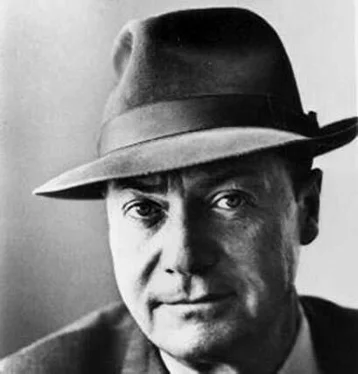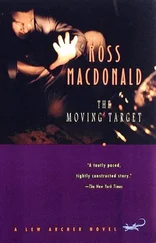So Archer would rise in the morning and feed the jays in the apartment-building courtyard. His neighbors thought him a lonely man.
—
“You seem to be a man engaged in an endless battle, an endless search. Has it ever occurred to you that the search may be for yourself? And that the way to find yourself is to be still and silent, silent and still?”
– The Blue Hammer
Some of his friends felt he’d never gotten over Sue.
She and Lew had tried a few times to reconcile, after their divorce; but that never got much past the first angry or melancholy hour. Sue stayed in Reno (“a city,” Lew once said, “where nothing good had ever happened to me” [104] The Chill.
), remarried, had some kids, and “lived happily ever after” – or so Archer said. After a few years, he no longer bothered to stay in touch – at least not in person. Three-in-the-morning silent dialogues in his head were another matter.
Not that Lew’s life after Sue had been without women. Far from it.
There’d been Mona, for instance, circa 1955, as described by Archer in this ruminative passage from the book The Barbarous Coast :
Mona passed out at parties because she had lost a husband in Korea and a small son at Children’s Hospital. I began to remember that I had no son, either. A man got lonely in the stucco wilderness, pushing forty with no chick, no child. Mona was pretty enough, and bright enough, and all she wanted was another child. What was I waiting for? A well-heeled virgin with her name in the Blue Book?
I decided to call Mona.
But right at that instant, Lew got an incoming phone message: saved by the bell. He never mentioned Mona again.
A bit earlier, and a lot more seriously, Archer dated Susanna Drew, a script girl in the story department at Warner’s, whom he met at a Beverly Hills agent’s party. She was ten years his junior:
We had things to talk about. She picked my brains for what I knew about people, and I picked hers for what she knew about books. I was crazy about her insane sense of humor.
The physical thing came more slowly, as it often does when it promises to be real. I think we tried to force it. We’d both been drinking, and a lot of stuff boiled up from Susanna’s childhood…
We had a bad passage, and Susanna stopped going to parties, at least the ones I went to. I heard she had a marriage which didn’t take. Then she had a career, which took. [105] The Far Side of the Dollar.
Archer ran into Susanna ten years later, around 1965, while on a case; and it seemed they might reunite on a permanent basis. But, as with so many of Archer’s liaisons, this one, too, apparently faded away.
Lew for the most part avoided overly available L.A. women: “The easy ones were nearly always trouble: frigid or nympho, schizy or commercial or alcoholic, sometimes all five at once. Their nicely wrapped gifts of themselves often turned out to be homemade bombs, or fudge with arsenic in it.” [106] Black Money.
There were several other women through the years with whom Archer had fleeting relationships; but for the most part, the females he was drawn to were unlikely candidates for a permanent alliance: women already married, women in emotional mourning, women living in a different city or country.
Was it somehow because of Sue that Archer tended to choose, if only unconsciously, such unpromising lovers?
But Ross Macdonald’s final Lew Archer novel, The Blue Hammer , offered at least the possibility that the private detective’s last years might not be spent alone.
At the start of his investigation into events at the heart of this book, Lew met a youngish newspaper reporter, Betty Jo Siddon – “a level-eyed brunette of about thirty…well-shaped but rather awkward in her movements, as if she weren’t quite at home in the world” – and they became intimate. At book’s end, there was every indication Archer and Betty Jo might remain together, perhaps even marry.
Balance this, though, against Archer’s history of abandoned relationships, and the odds are fifty-fifty Archer let Betty Jo slip away as well…
So whatever happened to Lew Archer? How did he end his days?
Ross Macdonald’s Archer novels stopped in 1976 with The Blue Hammer , a premature conclusion caused by the onset of Macdonald’s eventually diagnosed Alzheimer’s disease. We can only guess at Lew Archer’s ultimate fate.
On the outer edge of possibility would be a violent end for the detective who had had so many weapons aimed at him through the years in Southern California, where handguns sometimes seemed as plentiful as new cars.
A more plausible and in a way more awful fate may be theorized: the private eye may have succumbed to the same disease that halted the author who’d written about him for a quarter-century.
—
…thinking about a story I read in high school. It was called “The Vision of Mirza” and it had been cropping up in my memory for years.
Mirza had a vision of a bridge which a lot of people were crossing on foot: all the living people in the world. From time to time one of them would step on a kind of trap door and drop out of sight. The other pedestrians hardly noticed.
Each of them went on walking across the bridge until he hit a trap door of his own, and fell through.
– The Wycherly Woman
Archer all his life had an excellent memory, the sort often called “photographic”: he could read a document twice quickly and fix names, times, and places firmly in his head. Memory was essential to his work, especially for the sort of cases in which he came to specialize: convoluted series of interlocking events, with overlapping personnel.
At some point, though, he felt the need to start jotting things down in a black notebook, keeping track of multiple characters and complicated deeds, much as a working novelist might.
By the end of his recorded exploits, in the late 1970s, it seemed Archer was struggling with facts and language, that it took longer for his mental computer to retrieve information: “I woke up clear-minded in strong daylight…And my mind released the memory I needed.” [107] The Blue Hammer.
He made mistakes in dates and facts. More and more he forgot to eat – or even whether he had eaten.
Thinking seemed to tire him more by the late 1970s, so that he sometimes craved rest from it. “I sat down on one of the padded chairs,” he reported in The Blue Hammer , “and let my mind fray out for a couple of minutes.” In the same work, he made this disconcerting statement: “I felt for a moment that some ancient story was being repeated, that we had all been here before. I couldn’t remember exactly what the story was or how it ended. But I felt that the ending somehow depended on me.”
And so, of a sudden, we lose sight of a sixty-something Lew Archer, resident of a city whose initials he shared, a city he saw in daylight with clarity and at night as metaphor: “a maze, put together by an inspired child,” [108] Black Money.
“a luminous map…Its whorls and dots and rectangles of light…interpreted, like an abstract painting, in terms of everything that a man remembered.” [109] Sleeping Beauty.
—
See Archer at night then, one last time, parked perhaps in his car above Mulholland: a single human cell in that luminous organism of an endless city, while a God’s-eye camera pulls up and back and back and back – and the internalized soundtrack of a benignly fraying mind yields pieces of stored-up memory:
The man was in the maze; the maze was in the man.
The problem was to love people, try to serve them…
– wish I knew who you were –
Got to take a sentimental journey…
You’ll have to learn a trade.
A man is only as good as his conscience…
Ora pro nobis
Читать дальше












